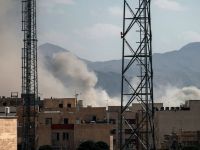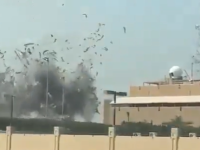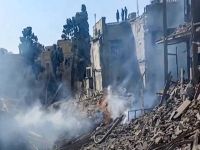United Nations Secretary-General Ban Ki-moon visited Jerusalem, Israel and Ramallah, West Bank, and was critical of Israeli settlements in Palestinian territory.
"I am very concerned about the recent announcement of plans to advance settlements in east Jerusalem, which are in clear violation of international law. I urge the government of Israel to reverse these activities," he said Monday. Israel announced plans in September to build over 2,500 housing units in Givat Hamatos, contested land in east Jerusalem. The announcement brought criticism from the United Nations, the European Union and the United States.
Ban met with Israeli Prime Minister Binyamin Netanyahu in Jerusalem, as well as Palestinian Prime Minister Rami Hamdallah in Ramallah. The visit came a day after he attended a donor conference in Cairo that raised $5.4 billion in pledges, largely to rebuild Gaza after its 50-day war with Israel.
He also was critical of the closing, by Jerusalem police, of the Al Aksa mosque, regarded by Muslims as their third-holiest site. Police locked the mosque, with Palestinians inside, after they found "petrol bombs, stones, bottle rockets and fireworks" within, police spokesman Micky Rosenfeld said.
The mosque has been a point of tension in recent weeks. Three police officers and nine Palestinians were injured last week in a conflict there; police used stun grenades to disperse a crowd throwing firebombs and stones, the New York Times reported.
Ban said he was "deeply concerned by repeated provocations at the holy sites in Jerusalem."
At a joint press conference Netanyahu noted Israel, which acquired the mosque with Jerusalem's Old City in 1967 but immediately gave control of the mosque to Muslim officials, "is committed to maintaining the status quo exactly as it has been for many decades." He blamed what he termed Palestinian extremists for "false and baseless rumors that we are threatening the Muslim holy places. Nothing could be further from the truth. Israel scrupulously maintains the protection of the holy sites, the right of all religions to worship in their holy places, and will continue to do so, maintaining order, maintaining freedom of worship."










